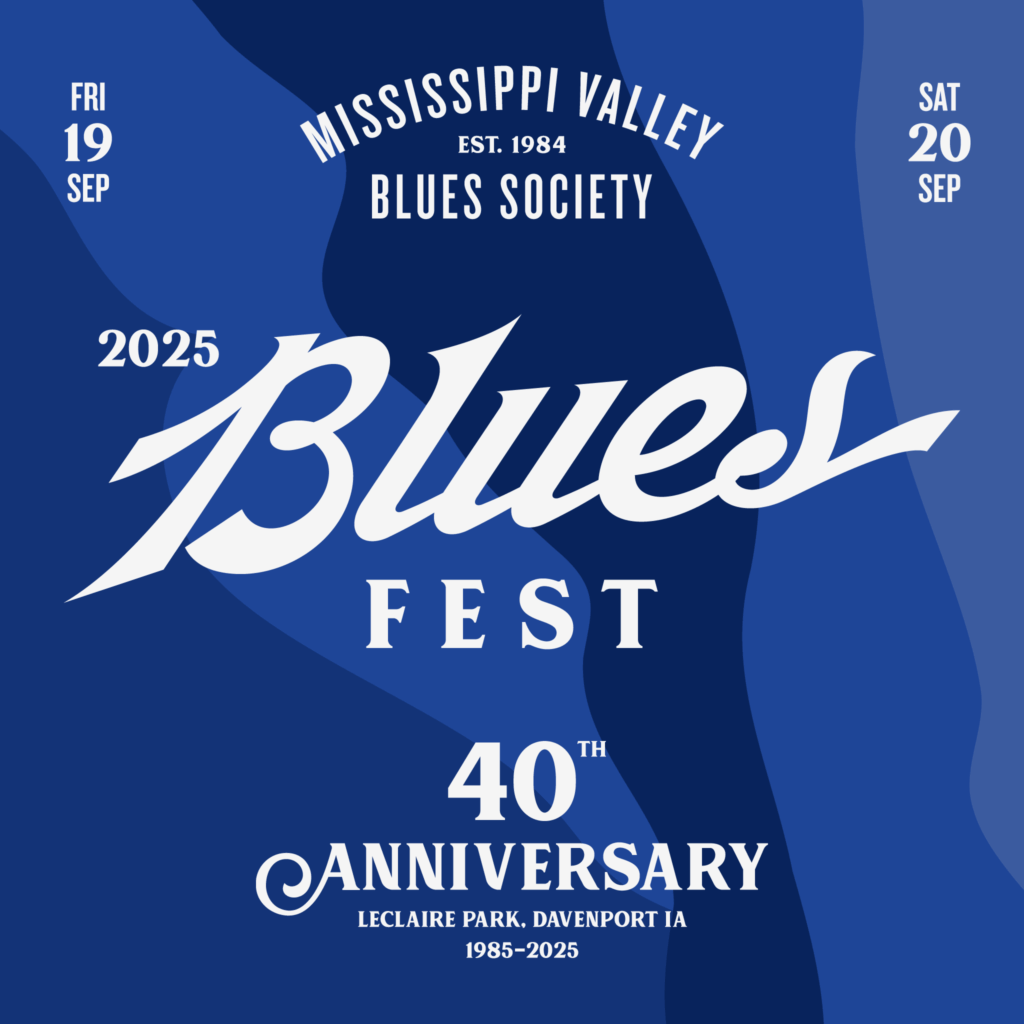 I Dare You
You Won't
I Dare You
You Won't

Dylan Parker
What was the first live music performance you witnessed, who was the performer, and what was the song?
The first performance I witnessed was a poorly attended set of my best friend’s teenage punk garage-band–back in high school (2003ish)–at Peabody’s Cafe in downtown Davenport. Their name was Silent Fall. I remember there being a few other touring regional heavy metal bands, too. My dad never took me to live music events growing up. I can’t recall ever having gone to The Mark or the Adler or anything like that, while growing up, to see whatever rock bands were on tour. Strangely, my dad didn’t really share with me his music until well into my college years. Or maybe I was just too busy being a teenager to listen to my dad’s recommendations? I found my way to the blues largely by myself, but once there, my dad was happy to meet me there.
What was the first Blues tune you heard?
Again, I came to the blues very late in life. I think my introduction to the blues was through fingerpicking; I remember hearing Arlo Guthrie’s “Alice’s Restaurant,” during my 60s revival years in college, and loving the storytelling and playful fingerpicking. While not the blues, that led me to actual blues artists, like Elizabeth Cotten (“Freight Train”) and Lead Belly (“Rock Island Line”).
What and who is your favorite Blues tune & Blues Artist?
Blind Boy Fuller’s “Meat Shakin’ Woman” will always hold a special place in my heart. I used to get a kick out of playing that song at parties, teasingly “serenading” my then-girlfriend (now-wife) with the song. She was a good sport about it, and it endeared her to me. Plus, when I learned how to play that song, I was at the peak of my technical skill; I always considered myself an amateur, but I was always proud that I learned how to pick that tune.
Tell me about growing up in a musical family, and how it has impacted your life?
Like I said, I didn’t get to know my dad’s history and affinity for the blues & rock music until much later in life. I was raised in my mom’s Lutheran faith and, reflecting back, church was a huge musical influence. Still today, while not much of a church-goer, I enjoy a good hymn and even organ music. However, as I grew older and discovered rock & roll, I also learned about my dad’s apparent former life as “Diesel Dave” in blues bands like “The Alley-Gators.” You gotta understand, by the time I was forming childhood memories, my dad was out of the local blues scene–no longer a mechanic by the time I was in high school. But, like they say: the apple doesn’t fall far from the tree. While I was branching out from a relatively sheltered musical upbringing, of music like Christian Rock, and discovering a whole cacophony of rock, blues, folk, country and other genres growing into adulthood, I was also learning about my dad’s musical history. It resulted in a very close connection with my father, a strange feeling like I was growing up alongside my own father’s development, too. I was discovering cool blues history about my dad when he was an 18-year-old, while being an 18-year-old myself. It was like a rites of passage. With my father gone, the Blues still holds a close association to him for me–and my own coming-of-age story and memories.
How do you feel the MVBS affects the quality of life in the QC area?
The blues, like jazz, is a way of telling American history. It binds us to a sense of place in time & space. I grew up in Davenport, but I now live in Rock Island, in no small part due to Rock Island’s cultural and musical history. After I discovered Lead Belly, I knew I wanted to live in Rock Island. Our history provides some context to our own identities and helps us define who we are and what we value. Organizations like the Mississippi Valley Blues Society helps remind us as to the uniquely American crossroads that is the Quad Cities. Understanding how a simple river and a railroad impacted both our hometowns and the development of an entirely new form of music is essential to understanding the Quad Cities and America. It is also essential to understanding ourselves. The MVBS helps keep that tradition alive and celebrated, allowing the next generation of Quad Citizens–like myself, taking over for my dad–call the Quad Cities home.
Have your own blues story that you want to share? Tell us!
Out of here
without Singing
Login
Not a member? Learn more
